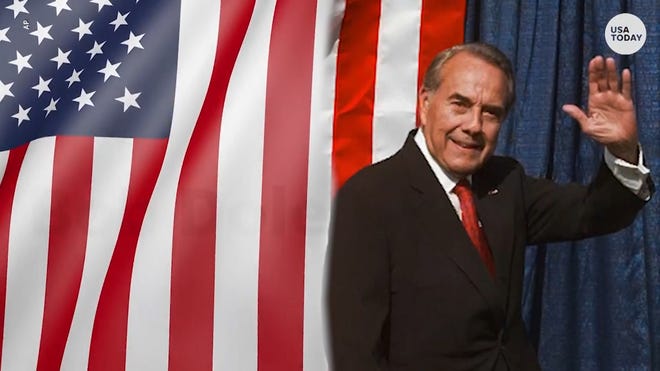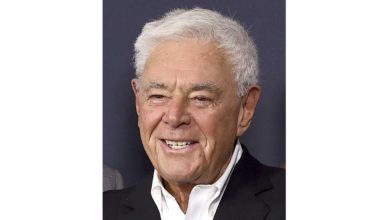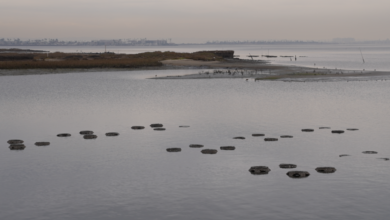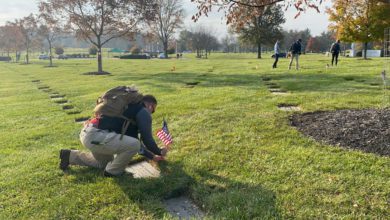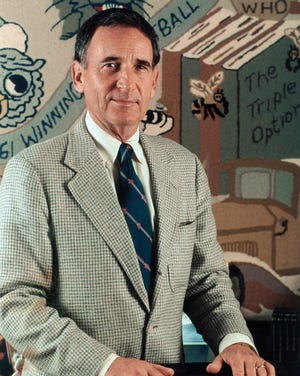
Gomer Jones gave Homer Rice five minutes to make a decision. That’s not much time.
Five minutes to choose on whether to uproot your life, your family’s life, your assistant coaches’ lives, your assistant coaches’ families’ lives.
Good thing Rice had something to fall back on.
Character.
When faced with a difficult decision or a quick decision, it’s always best when you can rely on doing the right thing. Always best when you can rely on character.

Do we even remember character, as it relates to college football? Oh, it’s out there. You can find it, if you look hard enough. But like option offenses and 1:30 p.m. kickoffs, it’s hard to find.
Rice didn’t have much time to ponder Gomer Jones’ offer. But Rice didn’t need much time. He knew the right thing.
So Rice turned down the head-coaching job at the University of Oklahoma.
“I think I did the right thing,” Rice said Wednesday from his vacation condo on Marco Island, Florida.
Sixteen years ago, Rice told me that he “turned down the greatest job in America.”
Rice is 94 years old and going strong. Still teaches a class at Georgia Tech, where he was athletic director for 17 years. Hired Bobby Ross for football and Bobby Cremins for basketball. Rice is such a Yellow Jacket institution, the school recently put up a statue in his honor.
“That’s something different,” Rice said. “I didn’t know they did things like that.”
Yep, they do things like that. Especially at OU, where the statues of four landmark coaches stand. Bennie Owen. Bud Wilkinson. Barry Switzer. Bob Stoops.
But the history of Sooner football could have been changed in those five minutes back in spring 1967.
Jim Mackenzie had just finished his first season as the OU coach and had put together a staff for the ages. Switzer. Chuck Fairbanks. Larry Lacewell. Galen Hall. Pat James. Rice.
The 1966 Sooners beat Texas and Nebraska but lost to OSU and Missouri, finishing 6-4. But most sensed that Mackenzie was something special.
In December ‘66, Rice left to become head coach at the University of Cincinnati, just across the Ohio River from his hometown of Fort Thomas.

And four months later, Mackenzie died of a heart attack at age 37.
Hence Jones’ call to Rice. Jones was OU’s athletic director. He had spent 17 years as Bud Wilkinson’s chief lieutenant, then two seasons as the Sooner head coach.
From George Lynn Cross’ Presidents Can’t Punt, we know that the OU regents were of a mind to open a nationwide search, but Cross believed stability was necessary and named Fairbanks head coach by executive order. The regents accepted Fairbanks as an interim coach, but in 1967, the Sooners went 10-1, finished No. 2 in the nation and all opposition was gone.
But before Cross named Fairbanks, Rice says he was given five minutes to decide to return to the staff he had just left.
These days, coaches have no conscience. They break contracts and gut staffs. They take a job, then two weeks later leave, when a better job comes along. Chain gangs display more character.
But in those five minutes, Rice quickly rationalized his thoughts. He knew he would have to keep Mackenzie’s Sooner staff intact.
If Rice left Cincinnati, he didn’t know what would happen to his new Bearcat coaches.
“That’s why I turned it down,” Rice said.
Fairbanks became coach, Switzer eventually succeeded Fairbanks and you know the rest, including a statue of Switzer.
It all worked out well for OU football.
But it all worked out well for Homer Rice. Oh, he didn’t turn Cincinnati football into a power (though he’s a fan of the Bearcats, about to play Alabama in the Cotton Bowl national semifinal). But Rice has had an extraordinary administrative career.
In two years at Cincinnati, Rice’s teams went 8-10-1. Then Rice became athletic director at North Carolina, where he stayed seven years. Rice returned to coaching at Rice University in the Southwest Conference for 1976-77, then the National Football League came calling.
Late in World War II, an 18-year-old Brown joined the service and was stationed at Great Lakes Naval Station, where he played catcher on the baseball team and caught a pitcher of some note, Cleveland Indians all-star Bob Feller.
“He could throw a fastball 100 mph, and I had to catch him,” Rice said. “With a little old mitt with a sponge in it.”
Rice said he always would call for a curve or a changeup, and Feller always would shake him off. Finally came the fastball. “He’d hit right square in the mitt, knock me back on my back, he was so strong,” Rice said.
The batboy on that Greak Lake Naval team was 10-year-old Mike Brown, who today is the owner of the Cincinnati Bengals. Brown’s father, Paul, founded the Bengals in 1968 and coached Ohio State from 1941-43 before entering the military himself. Paul Brown coached the Great Lakes Naval football team.
There, Rice met Paul Brown and fellow football coach Blanton Collier.
“Both became my mentors,” Rice said.
In 1962, after a 10-year high school coaching career, Rice was hired by Collier as the University of Kentucky offensive coordinator.

In 1978, Rice was hired by Paul Brown to coach the Bengals. Rice went 8-19 with the Bengals, then found his calling, as the athletic director at Georgia Tech. Rice developed and implemented the Total Person Program at Tech, and it has become the model for the NCAA Life Skills Program that is prevalent throughout the NCAA.
And Rice remains a Georgia Tech icon, 24 years after his retirement.
Rice spent just the one year in Oklahoma but remains a fan. His grandson attended OU. While at OU, Rice helped implement a Fellowship of Christian Athletes program and even went down to Texas to discuss the triple option with Darrell Royal, who was considering implementing with the Longhorns what became the wishbone. Rice had become something of an expert in the triple option with a passing twist.
“Everything was great,” Rice said. “I always follow the Sooners. See what’s going on there. That was a pretty good staff we had at that time. I knew he (Mackenzie) was going to get it going. I thought so much of him. I thought he was going to be one of the great coaches of our time.”

Chuck Bowman, who played at OU under Wilkinson and became an FCA legend in Oklahoma, is a long-time friend of Rice’s.
“I've often wondered if Homer had taken the OU job how things would be in Norman today,” Bowman said. “Something we will never know.”
But we do know what kind of character Rice had. Uncommon in the modern football world.
Berry Tramel: Berry can be reached at 405-760-8080 or at [email protected]. He can be heard Monday through Friday from 4:40-5:20 p.m. on The Sports Animal radio network, including FM-98.1. Support his work and that of other Oklahoman journalists by purchasing a digital subscription today.
Source link

